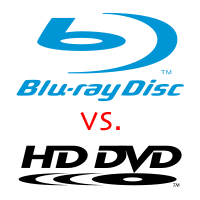 The days of floppies and burning CDs for transferring data are long gone. Floppy disks don't hold more than 1.5 MBs (less than half a song) and CDs can hold up to 700 MBs, but are impractical for burning once (or in the case of rewritables, a handful of times).
The days of floppies and burning CDs for transferring data are long gone. Floppy disks don't hold more than 1.5 MBs (less than half a song) and CDs can hold up to 700 MBs, but are impractical for burning once (or in the case of rewritables, a handful of times).Enter the flash drive. Just plug it into your USB port, and you've instantly got gigabytes of rewritable storage at your fingertips.
The range varies in price, capacity and other features. Here's what to keep an eye out for:
Keychain
This tiny little flash drive fits easily in your pocket or on your keychain, and carries a smaller capacity. You can easily find versions for under $40, if not less. But be sure to get at least 2 GBs worth of storage. Anything less would be uncivilized.
Portable Hard Drive
For extra big storage, check out a portable hard drive. 80 GBs should be a good size, and you can find them for under $100 (on sale, of course).
External Hard Drive
If you need enough storage to park an ark, something north of 200 GBs should do. Typically, bigger hard drives need their own power source, so consider that as well. As far as price goes, don't settle for less than 1 GB per dollar.
It certainly beats the alternative.



 Previously I'd given you MP3 player options
Previously I'd given you MP3 player options  Everyone needs Microsoft Word, right? If you're creating documents at work, writing term papers or just letters at home, you need to process words.
Everyone needs Microsoft Word, right? If you're creating documents at work, writing term papers or just letters at home, you need to process words.
 It's like someone's been reading my dream journal.
It's like someone's been reading my dream journal.
 Do you like instant messaging? Well you've got options.
Do you like instant messaging? Well you've got options.  So you want to buy a digital camera. Among all the megapixels, zooms, LCDs and any other factor you can find in weekly Best Buy circular, what should you look for? Well, see which consumer generalization best fits you for the answer:
So you want to buy a digital camera. Among all the megapixels, zooms, LCDs and any other factor you can find in weekly Best Buy circular, what should you look for? Well, see which consumer generalization best fits you for the answer:



